Keyword Research SEO 2023 The Ultimate Guide for Beginners Chapter 3 SEO Series. Why Keyword Research SEO 2023 is Important ? Analyze & Target Keywords.
If you find any mistake in this article then inform me by the comment box which is in the last of this article.
At Written Updatez, we write SEO friendly and unique content for you. We have many blog posts related to SEO factors for giving you meaningful & useful information.
Keyword Research SEO is the 3rd Chapter in the SEO series 2023 in which you can learn the complete Keyword Research course, its importance, how to analyze & target the keywords, Basic of Keywords Research & more about Keyword Research SEO 2023. We are divided this course into 6 types where you can easily understand the concept of Keyword Research.
In the first Topic
You can learn the Keyword Research basic & why Keyword research is important in SEO series to rank in search engines.
What is Keyword Research SEO ? (for Beginners)
Keyword Research is all about understanding the words and phrases your customers are typing into search engines. You can do this with keyword research tools such as Ahrefs, SEmrush & more.
Some factors:
Find popular words people use to search for your website's topic.
Use keyword tools to find popular keywords.
Focus on using longer, specific phrases called long-tail keywords.
Put keywords in your website's content to help it appear in search results.
Why is Keyword Research Important ?
Keyword research is important because it helps websites appear in search results when people search for things online. By knowing what people are searching for, website owners can create content that matches those searches and drive more visitors to their site.
In the second Topic
You can learn the Brainstorm of Keywords, Using Keywords research tools, Study your niche & more about Keywords research.
1- Brainstorm “seed” keywords
"Seed" keyword brainstorming is the process of developing a broad, relevant list of keywords related to a particular topic or industry. Seed keywords are the foundation of keyword research and are used as a starting point for identifying other keywords and related phrases that people search for on search engines.
The purpose of seed keyword brainstorming is to identify central themes and themes associated with a website or business. This can help website owners and digital marketers create content that matches the interests and needs of their target audience.
The seed keyword brainstorming process involves thinking about broad, general keywords that are relevant to the website or business. For example, if the website is about "travel", some initial keywords might be:
Destinations
Flights
Hotel
Cruise ship
Adventure travel
Once seed keywords are identified, website owners can use keyword research tools to identify other keywords and related phrases that people are searching for.
In general, seed keyword brainstorming is an important step in the keyword research process, as it allows website owners and digital marketers to better understand their target audience and match content to their needs and interests. Helps to create.
2- Seeing What Keywords your Competitors
Seeing what keywords your competitors are ranking for means seeing what words or phrases your competitors are using on your website to get them to appear at the top of search engine results pages. I will help. By doing this research, you can find out which keywords are successful for your competitors and try to use them in your content to get more visitors to your website.
You can find out what keywords your competitors are ranking for by using keyword research tools, checking your meta tags and content, looking at your backlinks, and using Google Search Console. . By seeing what keywords your competitors are using, you can adjust your SEO strategy and content to target similar keywords and drive more traffic to your site.
3- Using Keywords Research Tools
Keyword research tools are software programs that help you find keywords and phrases that people use to search for information online. These tools can provide valuable information about which keywords to target in your content, as well as information about search volume, competition, and related keywords.
Some popular keyword research tools you can use are:
Google Keyword Planner - This is a free tool provided by Google that allows you to search for keywords related to your industry and see how often they are searched for on Google.
Ahrefs – This is a paid tool that provides a wide range of SEO metrics, including keyword research data, backlink data, and competitive analysis.
SEMrush – This is another paid tool that provides keyword research data as well as competitive analysis, site audits, and other SEO-related data.
Moz Keyword Explorer – This is a paid tool that provides keyword research data, as well as metrics such as difficulty, opportunity and probability.
Ubersuggest – This is a free tool that provides keyword research data as well as competitive analysis, site audits, and backlink data.
Using the keyword research tool, you can enter a seed keyword or phrase related to your business, and the tool will provide a list of keywords and related phrases that people are searching for. You can then analyze this data to identify keywords with high search volume and low competition that you can target with your content to drive more visitors to your website.
In general, using keyword research tools is a valuable part of any SEO strategy, as it allows you to optimize your content for the keywords and phrases that people are searching for and Helps you bring more visitors to your site.
Matching terms:
Matched terms are words or phrases that exactly match your target keyword or phrase. For example, if your keyword is "running shoes," your match terms might include "best running shoes" or "running shoes for women."
Related Terms:
Related terms, on the other hand, are words or phrases that are related to your target keywords, but may not be an exact match. For example, terms related to "running shoes" might include "athletic shoes", "trail running shoes" or "marathon shoes".
It is important to consider both match terms and related terms when optimizing your content for search engines. While match terms can be more specific and specific, related terms can help you capture a wider range of search queries and bring more visitors to your site. By including both types of keywords in your content, you can improve your chances of ranking higher on search engine results pages and reaching your target audience.
4- Studying Your Niche
Studying your niche means understanding the specific market or industry in which your business or website operates. This includes researching your target audience, competitors and industry trends to better understand the needs and interests of your potential customers.
To study your location, you can:
Research your target audience: Identify who your ideal customers are, what they're looking for, and how they behave online. You can use tools like Google Analytics or Social Media Analytics to collect data about your website traffic and social media followers.
Analyze Your Competitors – Identify your competitors and study their online presence, content and marketing strategies. This can help you identify areas where you can differentiate yourself and find new opportunities to reach your target audience.
Stay up-to-date with industry trends - Stay up-to-date with news and developments in your industry and monitor changes in consumer behavior. This can help you anticipate new trends and adapt your content and marketing strategies accordingly.
By studying your niche, you can better understand your target audience and create content and marketing strategies that are more effective in attracting and engaging them. This can help you build a strong online presence, increase your visibility, and ultimately drive more traffic and sales to your website.
In the third Topic
You can learn how to analyze keyword research, its search volume, finding its traffic potential, its difficulty & more about keywords research analyzing.
How to Analyze Keywords ?
To perform keyword analysis, you can follow these steps:
Create a list of potential keywords: Use keyword research tools to identify a list of keywords relevant to your business or website.
Check Search Volume: See the search volume for each keyword. It tells you how many people are searching for that particular keyword on a monthly basis.
Assess the Competition: Assess the competition for each keyword. Look at the number of websites that are already targeting that keyword and the strength of their online presence.
Consider Relevance: Assess the relevance of each keyword to your business or website. Ask yourself if the keyword accurately reflects the content of your site and the needs of your target audience.
Look for long-tail keywords: Look for long-tail keywords, which are more specific phrases that contain multiple words. They may have lower search volume, but may be easier to rank and more relevant to your target audience.
Monitor Performance: After selecting your keywords, track their performance over time using analytics tools. This can help you gauge whether they are driving traffic to your site and whether they are driving conversions.
By doing keyword analysis, you can identify the best terms to target your content and marketing strategies. This can improve your search engine rankings, drive more traffic to your site, and ultimately lead to more sales or conversions.
Keyword Search Volume
Keyword search volume analysis is an important step in keyword research. Here are some factors to consider when analyzing search volume:
Monthly Search Volume: View the number of searches for each keyword on a monthly basis. You can use keyword research tools to get this data.
Trends over time: Analyze trends in search volume for each keyword over time. Some keywords may be more popular during certain seasons or in response to certain events.
Competitive Analysis: Check what keywords your competitors are targeting and their search volume. If a keyword has high search volume and low competition, it may be a good opportunity to target it.
Relevance: Consider how relevant the keyword is to your business and whether it reflects the intent of your target audience.
Long Tail Keywords: Find long tail keywords with low search volume but high relevance to your business. They can be easier to rank for and drive more targeted traffic to your site.
Search Volume by Location: If your business operates in a specific geographic location, check the search volume for keywords related to your location.
By analyzing search volume, you can identify the most popular and relevant keywords to target your content and marketing strategies. However, search volume must be adjusted to other factors such as competition and relevance to your business.
Traffic Potential
Analyzing the potential traffic for the keyword "SEO keyword research" can help you estimate how much traffic this keyword can generate to your website if it is listed in search engine result pages (SERPs). But it ranks high.
To estimate potential "SEO keyword research" traffic, you can use keyword research tools that provide data on search volume, click-through rate, and average SERP position for that keyword. are Based on this data, you can estimate how many clicks and visits your website might get if you rank high for that keyword.
However, it's important to note that traffic potential is only an estimate and can vary based on a number of factors, such as your website's domain authority, the relevance of your content to the keywords, and the keywords that you're targeting. Competition for It's also important to focus on high-intent keywords that are more relevant to your business and are more likely to convert visitors into customers.
To maximize the traffic potential of "SEO keyword research," you can optimize your website content to include the keyword in strategic places, such as the title tag, meta description, and throughout your content. can be done You can also create high-quality content that provides valuable insight into keyword research and SEO trends in 2023. In addition, you can build high-quality backlinks into your content to improve your website's domain authority and increase your chances. .
By analyzing potential traffic with "SEO Keyword Research", you can identify the most valuable and relevant keywords to target your marketing and SEO strategies, and attract more targeted traffic and leads. So you can improve your website content.
Keyword Difficulty
Keyword difficulty (KD) is a metric used in SEO to measure how difficult it is to rank for a particular keyword. SEO professionals look at various factors, such as search intent, content relevance, backlinks, domain authority, and SERP features, to determine a keyword's KD.
Backlinks are considered an important ranking factor, so the KD score is based on the number of unique websites that link to the top 10 ranking pages. The KD score indicates the approximate number of website links a page needs to rank in the top 10, not necessarily #1.
It's a common mistake to avoid high KD keywords and focus only on easy ones, but targeting high KD keywords first can be beneficial because getting backlinks takes time and resources. Additionally, high KD keywords can serve as link opportunities, indicating a "link-worthy" topic.
However, KD is not a one-size-fits-all metric, and manual keyword analysis is still necessary. No single score can capture the complexity of Google's ranking algorithm, and it's important to be wary of tool makers who suggest otherwise.
Cost Per Click (CPC)
Cost per click (CPC) is a term used in online advertising to describe the amount of money an advertiser pays each time a user clicks on their ad. In other words, it is the price an advertiser is willing to pay to generate a click on their ad.
CPC is commonly used in the context of pay-per-click (PPC) advertising, which is an online advertising model where advertisers pay only when a user clicks on their ad. The cost per click can vary depending on the ad placement and the value of the keywords used in the ad.
Why is CPC an important metric?
CPC is an important metric for advertisers because it directly affects the profitability of their ad campaigns. A higher CPC means it will cost more to generate clicks and potentially conversions, while a lower CPC can make advertising more profitable.
CPC can also be used as an indicator of competition for specific keywords on search engine results pages (SERPs). High CPCs for certain keywords may indicate that they are very competitive and in high demand among advertisers, while low CPCs may suggest less competition.
In general, CPC is a key metric that advertisers need to consider when planning their online advertising campaigns and optimizing their ad spend.
In the forth Topic
You can learn how to target any keywords to rank higher in search engines. In this topic two main heading no. 1- Identify the Parent Topic and no. 2- Study the search intent
How to Target Keywords ?
To target any keyword, you need to follow a few steps:
Keyword Research – Use keyword research tools or brainstorming techniques to find the right keywords that fit your content goals and target audience.
Analyze the Competition - Review the top-ranking pages for your chosen keywords and analyze their content, backlinks, and domain authority to understand what's working and what's not.
Optimize Your Content – Once you've chosen keywords, optimize your content by strategically placing it in the title, meta description, header tags and body of your content. Make sure the content is relevant and valuable to your target audience.
Build High Quality Backlinks – Link building is very important for ranking high on search engine results pages (SERPs). Focus on building high-quality backlinks from authoritative websites in your niche.
Monitor Your Results – Use tools like Google Analytics and Google Search Console to track your keyword rankings, traffic, and click-through rates. Monitor your progress regularly and adapt your SEO and content strategy as needed.
In general, targeting any keyword requires a holistic approach that includes ongoing research, analysis, optimization and monitoring. With the right strategy and effort, you can improve your chances of ranking higher in search engine results and driving more traffic to your website.
1- Identify the Parent Topic
Identifying a main topic involves finding a central theme or topic to which a keyword or group of keywords is related. This can be useful for organizing your content and optimizing it for search engines.
For example, let's say you have a website that sells athletic shoes. Some keywords you may want to target include "running shoes," "basketball shoes," and "tennis shoes." Although these are all related to athletic footwear, each falls into a specific subcategory of the larger topic.
In this case, the main topic will be "sports shoes", which includes all types of sports shoes. By identifying this general theme, you can create a content strategy that targets the main theme as well as subcategories.
This approach can help you rank for a wider range of relevant keywords, increase your visibility in search results, and drive more targeted traffic to your website.
To identify a main topic, start by brainstorming a list of keywords related to your business or niche. Then look for patterns or common themes between those keywords. This can help you group them into broader categories and identify a central theme.
You can also use keyword research tools to help you identify the right topic. These tools often provide data on relevant keywords and search volume, which can help you see the big picture and determine the most relevant and valuable topics to focus on.
In general, identifying a central theme is an important step in developing an effective keyword strategy for your website or business. By understanding the main topics and subcategories of your keywords, you can create targeted and optimized content that resonates with your audience and drives traffic to your site.
2- Study the Search Intent
Studying search intent involves understanding the reason for a user's search query. It is the process of finding out what a user is looking for when they enter a specific keyword or phrase into a search engine.
Search intent can be divided into four main categories:
Informational Intent: Users are looking for information or answers to their questions. For example, "How to do keyword research?"
Navigation Intent: Users are looking for a specific website or web page. For example, "Facebook login page".
Transaction Intent: Customers want to make a purchase or take a specific action. For example, "Buy iPhone 12 online".
Commercial Intent: Consumers seek information about a product or service with the intention of making a future purchase. For example, "Best SEO Tools for Small Businesses."
To target keywords effectively, you need to understand the search intent behind it. Once you know intent, you can create content that meets the user's needs and matches their intent.
For example, if the keyword is informational, you should create content that answers the user's question and provides valuable information. If the keyword has transactional intent, you need to create content that helps the user make a purchase decision.
Understanding search intent is crucial because it helps you create relevant and valuable content for your audience. If you can provide users with the information they are looking for, you can increase your chances of ranking higher in search engine results and driving more traffic to your website.
In the fifth Topic
You can learn the How to prioritize keywords, business potential keywords & more about the keywords research seo series chapter 3 complete course.
How to Prioritize Keywords ?
Keyword prioritization involves determining which keywords are most important to your website and business, and allocating resources accordingly. This may include considering factors such as search volume, keyword difficulty, relevance to your business, and search intent. By prioritizing keywords, you can focus your SEO efforts on the most valuable and attainable opportunities, and increase your chances of ranking well and driving traffic to your site.
How to Assess the "Business Potential" of a Keyword ?
Evaluating the commercial potential of a keyword involves looking at whether the keyword is relevant to your business and whether it can drive traffic and revenue. Here are some steps to assess the marketability of a keyword:
Relevance: The keyword should be relevant to your business, product or service. Check if the keyword is closely related to what you are offering.
Search Volume: Determines the search volume for the keyword. Higher search volume means more potential traffic, but it also means more competition.
Competition: Analyze the level of competition for keywords. Check how many other websites are targeting the same keyword and evaluate the quality of their content and backlinks. This will help you understand the difficulty level of ranking for the keyword.
Commercial Intent: Determine the commercial intent of the keywords. Some keywords indicate that the user is looking for a product or service to purchase, while others indicate that the user is simply looking for information. Keywords with high commercial intent are more likely to generate revenue.
Cost per click: Check the keyword's cost per click (CPC). It tells how much advertisers are willing to pay for clicks on ads related to keywords. A higher CPC can indicate more business potential for a keyword.
Audience Targeting: Assess whether the keyword is relevant to your target audience. The keyword should match the interests and needs of your potential customers.
By analyzing these factors, you can assess the business potential of keywords and prioritize accordingly. Choose keywords with high relevance, search volume, commercial intent and target audience, taking into account the level of competition and CPC as well.
Which Keywords should you start working on first?
You should start working on keywords that have high business potential and low difficulty scores. These are keywords that are highly relevant to your business, have high search volume, and low competition.
Here are some steps to help you prioritize keywords:
Start by identifying keywords that are relevant to your business and align with your marketing goals.
Analyze the search volume and level of competition for each keyword. You can use keyword research tools like Google Keyword Planner or Ahrefs to get this data.
Look for keywords that have high search volume and low competition. These are the keywords that have the potential to get the most traffic and are the easiest to rank for.
Consider the commercial potential of each keyword. Find keywords that are highly relevant to your business and align with your marketing goals. These are the keywords that are most likely to increase conversions and revenue.
Prioritize keywords based on their business potential and difficulty score. First focus on keywords that have high business potential and low difficulty scores. These are the keywords that will generate the most value for your company in the least amount of time.
Remember that keyword research is an ongoing process. You should regularly review and update your keyword strategy based on changes in search trends, competition and your business goals.
In the sixth Topic
You can learn the keywords research tools which tools are used for research good & low volume keywords to rank higher in search engines.
Keyword Research SEO 2023 Tools
There are many keyword research SEO tools available in the market, each with its own unique features and benefits.
Some of the most popular ones are:
Google Keyword Planner
SEMrush
Ahrefs
Moz Keyword Explorer
Ubersuggest
Keyword Tool
SpyFu
SERPstat
Long Tail Pro
KWFinder
Closing Words
We hope you are enjoying this SEO Series and gain a lot of knowledge from this course we hope you like very much this chapter 3rd as like chapter 1 & 2.


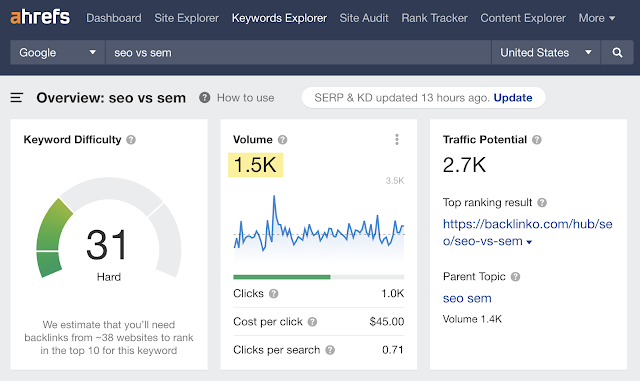
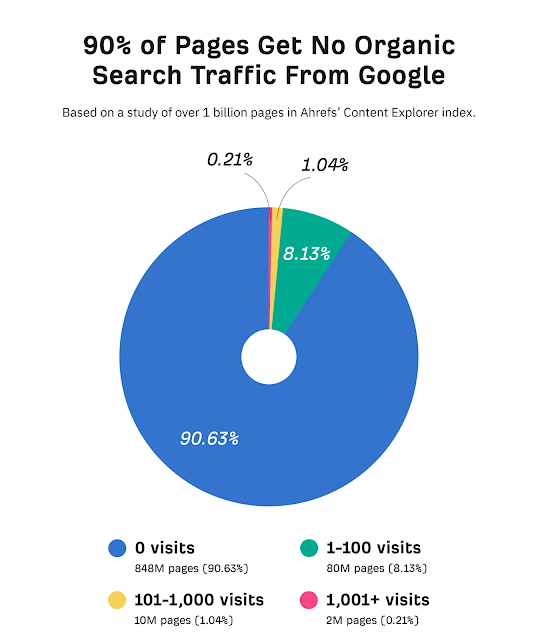


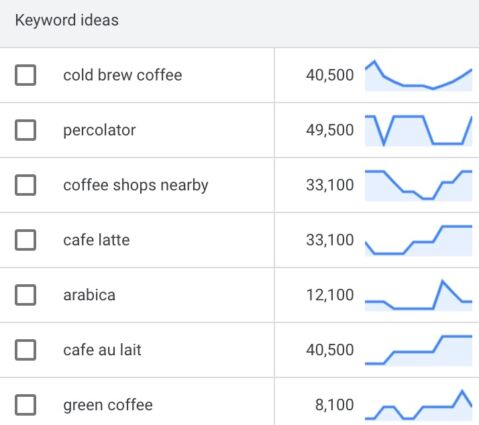
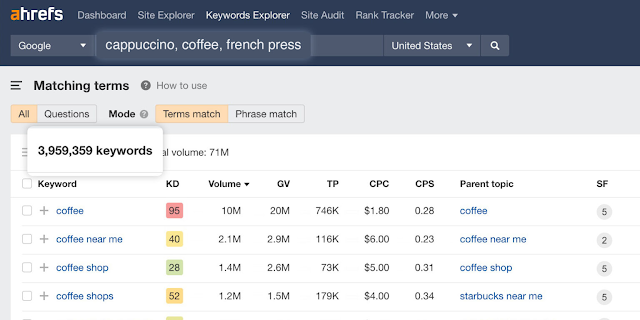
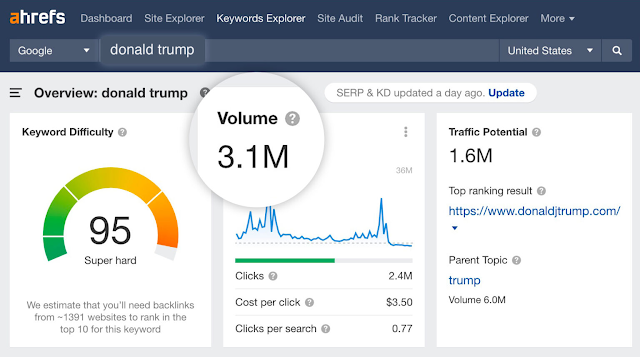

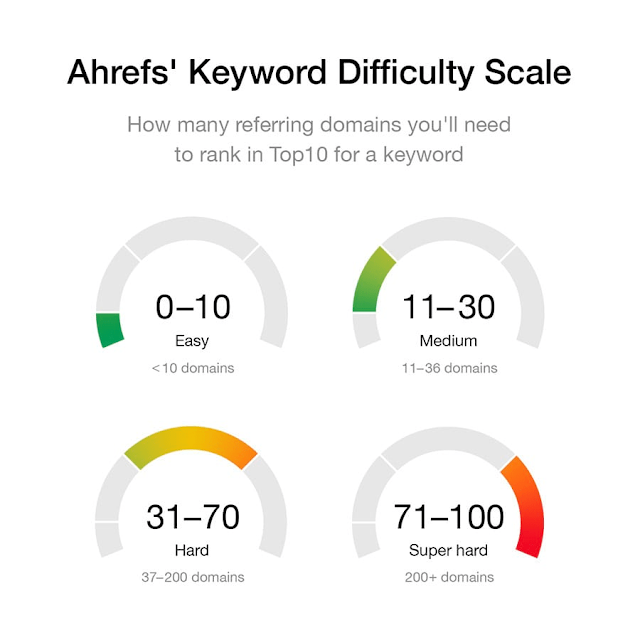
.png)
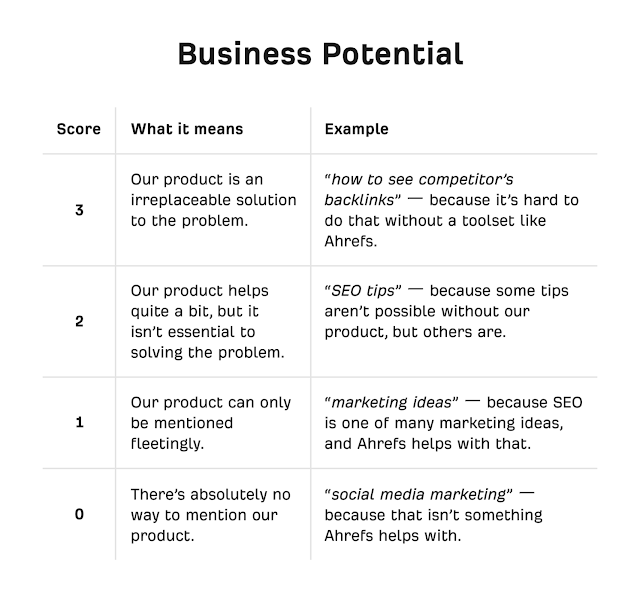
No comments:
Post a Comment